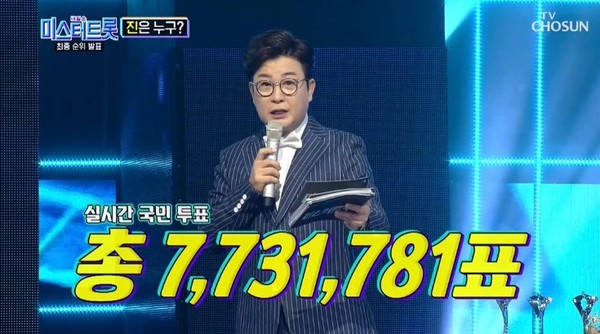
Trot music is usually heard at express highway rest stops, local product festivals, and on the show <Korea Sings>. However, nowadays, it’s easy to hear Trot music on TV. People are singing along with the Trot singers, and even selecting a Trot song at singing rooms. Trot music is often heard from speakers in traditional markets, but with increased popularity, streaming sites are now offering a Trot music time slot. You can find Trot music-related programs on any TV channel. Also, in foreign countries, Korean singers are singing Trot music. Trot music is not considered Korean popular music, but in 2020, it has permeated daily life.

Trot music, the origin
Trot music hasn’t been around long in Korea. Trot, which means ‘walk fast’, music really took off in Korea in the late 1920s during the Japanese colonial era. At that time, ‘Enka’, a combination of Japanese folk music and Western Foxtrot, had become popular in Japan. These songs, translated into Korean and other Korean songs were recorded by Japanese artists, so Korean and Japanese melodies started to merge. The trend accelerated during that period because Japan had hoped to obliterate the Korean language by the end of the late 1930s. This mixed music style was referred to as ‘popular’ music because it was different from traditional Korean folk songs. Until independence was gained from Japan, Enka songs remained popular. However, after independence, artists started to remove remnants of Japan in Korean popular music, and in the 1960s, newly created songs became known as Trot music. Korean Trot music really took off in the 1970s because of its easy-to-understand lyrics and unique bending of voice and sound. Today, people who have majored in Korean traditional music are now singing Trot songs on modern shows like <Miss Trot> and <Mr. Trot> because the music resembles Gugak, Korean traditional music. While Korean Trot music may have started during the Japanese colonial era, it has now developed into a unique music genre that combines Korean culture and style.

The number of collected text votes for <Mr.Trot> is 7.73 million
Trot music never disappeared from Korea, but its growth slowed from the 1990s. <Miss Trot>, which aired in 2019, revitalized its popularity in Korea again. From this show, a keen interest in Trot singers who won the competition show has emerged. Song Ga-in, the of <Miss Trot>, has become a TV celebrity. TV shows that have her making guest appearances have above average ratings, and many now believe to obtain higher ratings, they should have Song Ga-in appear. Song has also appeared on a number of TV commercials for products such as soju and cosmetics. <Mr. Trot>, another recently created competition show, also reached high popularity. On the final episode, which aired on March 12, a total of 7.73 million text votes were collected from viewers. Due to an extraordinarily high number of votes, the show decided not to announce the winner that day, but to have a special live broadcast on March 14. The popularity of the show has led to the creation of various Trot entertainment shows such as <K-Trot in Town>, <Hangout with Yoo-Bbong For Yoo>, <I Am a Trot Singer>, and <Trot Queen>. Each show is popular at the moment, but while each centers on the common theme of Trot, their formats differ slightly.

The growing popularity of Trot music
Trot music really became trendy with <Miss Trot>. Before the show, Trot music was only popular among middle-aged people. The competition show attracted the attention of many Koreans, from teens to those in their thirties who are familiar with competition programs. The popularity of Trot music is also related to the ‘Newtro’ phenomenon, which is the feeling of something new from something old. Something old is something that has not been directly experienced and thought of as retro style. This newtro trend has led to an interest in Semi-Trot, a new sound that incorporates EDM music like “Amor Fati”.1) Newtro helped <Miss Trot> and <Mr. Trot> to reach its success. The show also included a number of interesting stage challenges such as a group competition round, and a 1:1 elimination round before the semi-finals and finals. As a result, even though it aired on a cable channel, <Miss Trot> recorded the highest viewer ratings of any show at 18.1%. <Mr. Trot> scored even higher at 35.7%. Knowing that OTT services are quite common which has brought about decreasing TV viewer ratings, these results are tremendous. Ha Young-gi, an office worker in his 50s, said, “I’ve always liked Trot music, so I enjoyed <Miss Trot>. Trot music is gaining popularity since <Miss Trot> aired. I think this is partially due to the competition on the show as well as each singer’s Trot song performance.” <Miss Trot> started the crazy for Trot music in modern times by capitalizing on the competition idea of other shows.
Korean TV has seen scores of competition shows being broadcasted on various TV channels, some of which include TV viewer voting such as <Superstar K>, <Star Audition, The Great Birth>, <K-POP STAR> and <PRODUCE 101>. Singers who performed on those shows have become well-known celebrities. However, those programs did not have the popularity of <Miss Trot> and <Mr. Trot>. For instance, <PRODUCE 101> soared to great viewership by making its winners Korea’s next great K-pop singers, but even so, the main viewers of the show were people in their teens and twenties. Trot music is much easier to articulate and is not as complex as other musical genres because it mostly centers on monotone 5th scale and 2 beats. For this reason, it attracts both older and younger audiences. Trot music also embraces the emotions of joy, anger, sorrow, and pleasure. Ha said, “Since the core of Trot music is on emotions, it’s easy to listen to and sing along.” Like other music genres, Trot song lyrics express the emotions of love and separation. They also talk about the love of family and longingness for the loved ones. The music has gained popularity because these themes were often ignored in K-pop. Lim Young-Woong, the winner of <Mr. Trot>, sung the song “Story of an old couple in their 60s”. The song is about the person’s memories of a deceased spouse. “Drink Makgeolli”, sung by second-place winner Young Tak, is about the memories of his father while he enjoys a glass of makgeolli. The two song videos had 12.90 million and 9.46 million views, respectively, on YouTube as of April 8. These examples illustrate the popularity of Trot music and lyrics that convey feelings, themes, rhythms, and lyrics that all Koreans would enjoy.

Song Ga-in's fanclub, AGAIN, gathered for the concerts
The power of Trot music
The Trot music craze, starting with <Miss Trot>, is just beginning. More and more people are starting to enjoy the genre. Trot music is now changing the way people live. It has even sparked ‘silver fandom culture’. Fans, who enjoy fandom culture, feel a sense of belonging when they support the same singer with others. These fans attend concerts together and communicate online on closed Internet communities. Most people in those fandom cultures are teens and people in their twenties and thirties. According to ‘Interpark Ticket’, these age groups were the largest buyers of tickets for BTS and TWICE concerts in 2019, 86.9% and 86.5%, respectively. The statistics indicate that fandom culture is actively engaged in among young adults. However, Trot music has now created a new fandom culture, known as silver fandom. Jung Eunji, Department of Russian Studies at Hallym University, said, “I went to the <2019 K-World Festa> last August. Most performers were K-pop idols, so naturally most of the audience was expected to be the young. However, I saw something odd and fresh. In the standing section, I noticed a number of elderly danced and wearing matching pink hats and shirts. Turns out they were fans coming to see Song Ga-in.” Unlike the past where there were few music events that elders could see and enjoy, today there are more and more springing up in the name of silver fandom.
Moreover, Trot music has become the link between the young and the old. Just as the elderly are now experiencing fandom culture, young people are enjoying the sounds of Trot music. In November 2019, the famous comedian Yoo Jae-suk released a Trot music album under the name Yoo San-seul through the show <Hangout with Yoo>. On the show, he showed the album production process, and this is said to have led to a hit song. The percentage of individuals searching the name ‘Yoo San-seul’ on websites were 34% from twenty-year-olds and 28% from thirty-year-olds. These percentages indicate Trot music is not only for the middle-aged anymore, but it has also become popular with various ages it has now.2) In other words, the younger generation is showing great interest in Trot music. Furthermore, nowadays, the different generations are all cheering at Trot music concerts together. Oh Sunhee, a member of ‘Heroic Age’, the Trot music singer Lim Young-woong’s fan club, said, “Our membership includes people as young as teenagers to as old as those in their 80s. Younger members began joining after the airing of <Mr. Trot>. There are plenty of electronic ways to cheer on a singer these days. I’m so grateful to learn from our younger members.”3) As Oh stated, the Trot music craze has brought about the formation of fan clubs comprised of members of various ages. The members are united through the sharing of knowledge. Trot music fandom culture is enabling people of all ages to interact and enjoy cheering for the same singer.

A new wave, K-Trot
Today, Koreans are feeling the power of culture. In the past, no one would have thought it possible, but with <Parasite> winning an Academy Award for Best Picture and BTS having a fourth no.1 album on the Billboard 200 chart, today anything is possible. The culture of Korea has expanded to the international stage, and with Trot music currently receiving much love in Korea, it, too, is expected to reach the global market. Thanks to the popularity of Trot music, many TV programs are featuring Trot and interest is rising exponentially. ‘K-Trot’ is likely to make inroads onto overseas’ stages. How about taking an interest in Trot music and see where it takes you?

Photo of Yoo San-seul
1) Kang Seungtae, “The Power of ‘Trot’ Music Dominating TV Shows Today...Trot music Singer Sees Value Jump 10 Billion Won”, Maekyung ECONOMY, February 14, 2020
2) No Songwon, “[Today’s Entertainment] ‘Song Gain & Yoo Sanseul’ Keyword searches on “trot music” increases tenfold, MBC News, February 28, 2020
3) Oh Jongtak, “[Trot music Fever] Fan Spirit No Less Than BTS ‘ARMY’...Fans behind Trot music fever”, Sisa journal, March 14, 2020
Kim Lee Hyunmin / Editor-in-Chief
smt_lhm@sookmyung.ac.kr
Ahn Ha Yura / Culture Section Editor
smt_hyr@sookmyung.ac.k


